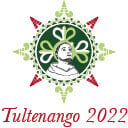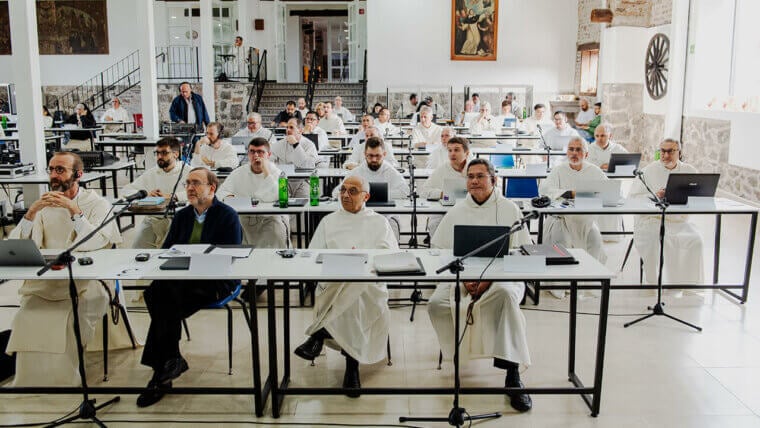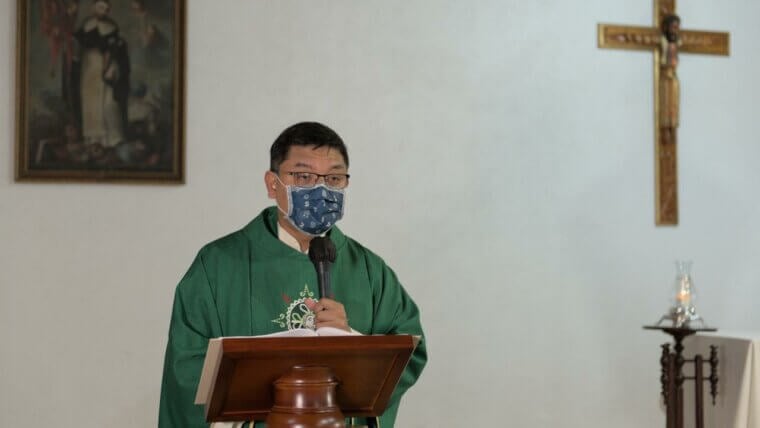Praching of July, 26th 2022 by br. Gregory Pearson, OP.
Memorial of SS Joachim & Anne
Readings: Jer 14:17-22; Mt 13:36-43

We all know that what we believe and say about Our Lady can give concrete expression to what we believe about Jesus her Son; the most obvious example, perhaps, is the debate about her title of Theotokos, Mother of God, which culminated in the approval of that title – and the condemnation of those who opposed it – at the Council of Ephesus, making it the touchstone of orthodox belief in the hypostatic union.
There are, of course, many other examples, but as today we keep the memory of Our Lord’s grandparents, St Joachim and St Anne, we could perhaps reflect on the fact that for God to take on our human nature did not merely mean finding a womb in which to be conceived, but finding a mother – one from whom he would not merely take literal flesh, but also membership of the human race, with the particularities of time and place, of family bonds and ethnic identity which that entails. What’s more, these are not simply the necessary concomitants of being human: they are part of the means by which the Word of God made flesh communicates himself to us. For God’s communication of himself to be effective, he had first to prepare a language in which for his Word incarnate to be spoken – not in the sense of human speech, but in the sense of a system of meaning which the whole of salvation history built up, and of which Israel, God’s chosen people, were the bearers.
The history of God’s people speaks, of course, of the great things the Lord did for them; it develops the great themes of salvation, redemption, liberation. But it also contains many instances of infidelity on the part of the people, followed by a repentant return to the Lord of which the words of Jeremiah in today’s first reading are an example. Yet this experience of human infidelity is by no means limited to the people of Israel; it’s the common experience of humanity, of which the history of Israel gives a particular expression and of which our Gospel parable of the wheat and the tares also speaks.
And that’s important, because of course the message of salvation which God speaks to us through the Incarnation, in the “language” of the history of his people, is a message for the whole of humanity. Our task as preachers is nothing more and nothing less than to communicate that saving message to the people of our world, and that means both knowing the “language” of the Incarnation and being able to show how it speaks to all those whom Christ came to redeem.
Br. Gregory Pearson, OP







